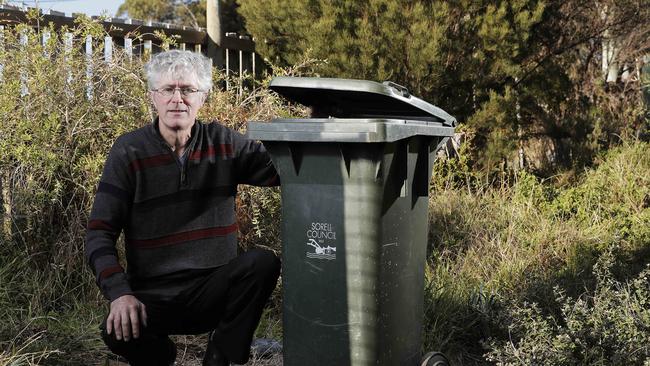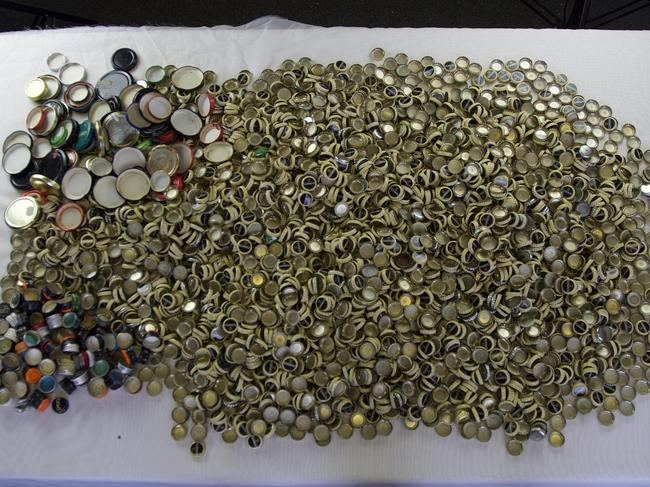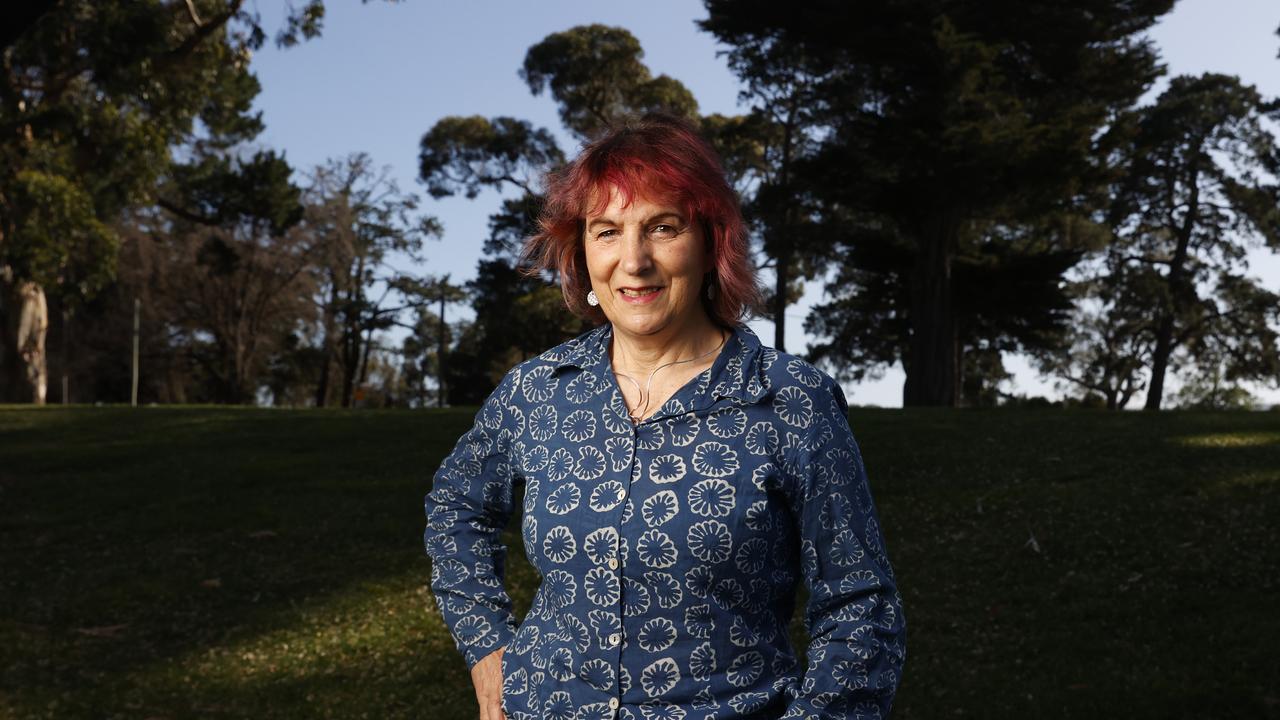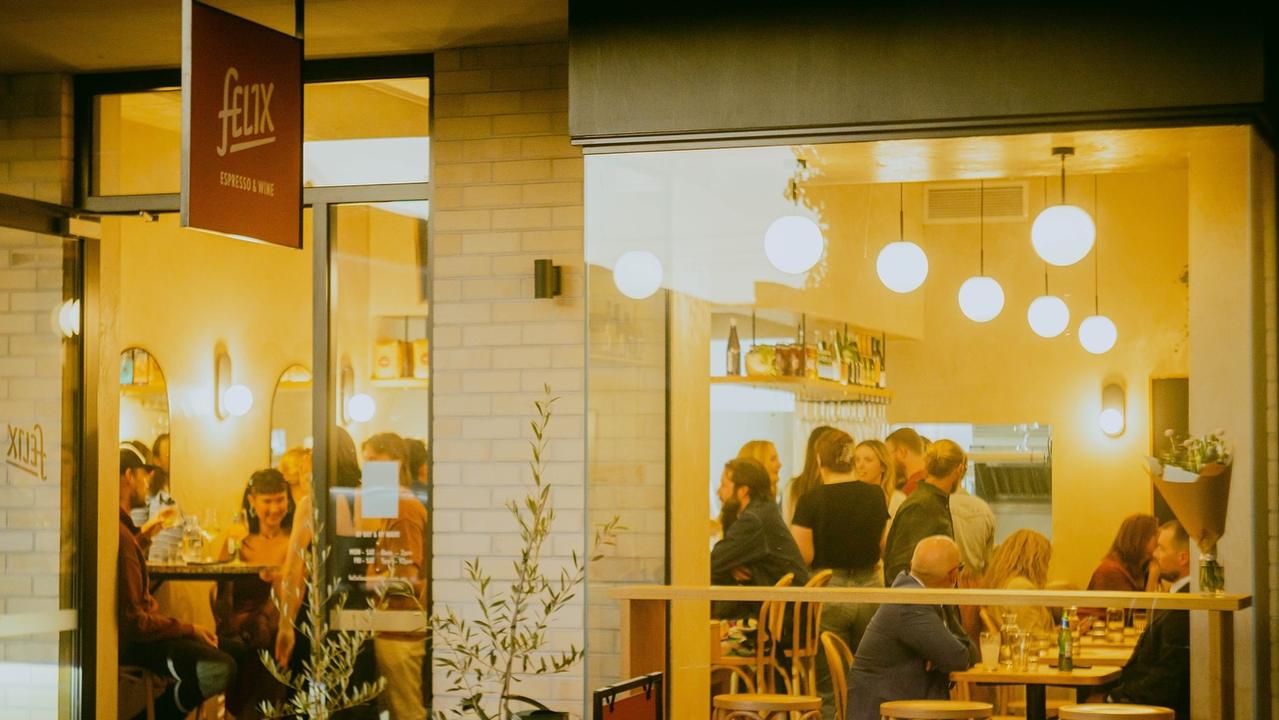Tasmanian Conservation Trust’s Peter McGlone only uses his general waste bin once in eight years
It has been nearly eight years since Peter McGlone last filled his garbage bin and put it out for collection – a feat of waste reduction that has required a radical retail re-think.

Lifestyle
Don't miss out on the headlines from Lifestyle. Followed categories will be added to My News.
IT is empty of garbage, but full of hope.
As the swirl of plastic pollution grows thicker around the globe, a barren bin in southern Tasmania is testament to zero-waste determination.
It has been nearly eight years since Peter McGlone last filled his garbage bin and put it out for collection – a feat that has required a radical retail rethink.
The Dodges Ferry resident, also director of the Tasmanian Conservation Trust, has stopped shopping at large supermarkets, avoids buying items such as yoghurt and ice-cream sold in dense plastic, and never buys in bulk.
“I gave up going to large supermarkets because you buy lots of things you don’t need and buy larger quantities than you need, leading to waste,” he said.
He was shocked into change in October 2011 after a friend, artist Robyn McNicol, organised a marine plastic pollution art project with Taroona High School called “Plastic Swirl”.
“It so affected me I decided I had to stop my plastic waste, and that was the last time I put my rubbish out.”
From that moment, his wheelie bin has stopped its weekly ride to the kerbside.
Instead of contributing to landfill, Mr McGlone is using his compost bin, the Sorell Council’s recycling bin and RedCycle bins (for soft plastics) found at some supermarkets.
Changing his shopping habits was the first step along the path to treading more lightly on the planet
He visited Coles and Woolworths only three times in the first three years and has not stepped foot in the stores once in the past four years.
“It’s not just that so many items come in plastic packaging, it’s also the fact that you end up buying things you don’t really need,” he said.
Instead, he shops at wholefood stores and smaller independent supermarkets, such as Hill Street stores and IGAs, where paper bags are offered in the fruit and veg section.

Some food items have been abandoned altogether because of their thick plastic containers, such as ice-cream, yoghurt, margarine, dips and pesto.
But Mr McGlone has not given up his beer in glass bottles, as “you’ve got to live”.
While the glass is recyclable, he is having difficulty finding a way to ethically dispose of the metal lids.
Since he began the zero-waste drive in 2011, Mr McGlone has created only 47.6kg of waste that has not been acceptable in kerbside recycling bins.
Of that weight, 25 per cent is made up of metal bottle and jar lids, which now sit in boxes inside his home.
He said clothing was also problematic, as so many supposedly natural fibres still contained some plastic elastic.
He said the biggest single fix was using a compost bin.
“At least 50 per cent of the solution is in using a compost bin and buying things that are compostable,” he said.
MORE OF TODAY’S NEWS:
OPINION: TRAFFIC. HOW MUCH DO YOU WANT TO SPEND?
TASWEEKEND: TAWDRY TALES OF SEX IN EARLY HOBART
TASSIE POLICE HAVE A NEW WEAPON TO FIGHT CRIME
Mr McGlone is not alone in the drive to reduce waste, and Tasmania is seen as a leader in the field.
The Carters, a zero-waste family from Taroona, are selling their book A Family Guide to Waste-Free Living, around Australia and will be promoting it in Melbourne next month.
“Change is happening. It’s not happening at the rate I’d like, but it is happening,” said Oberon Carter, who is waste-free, with his wife Lauren and three daughters Audrey, 15, Xanthe, 12, and Maisie, 8.
The Carters, who started their waste-free mission in October 2015, have committed to not only eliminating waste for landfill but avoiding recycling because the final destination for recycling is “hazy”. “We don’t use a bin, we keep a jar for our landfill,” Mr Carter said.
In almost three years, their one jar is almost three quarters full – with items such as sticky tape, plastic clothing tags from the op shop and a balloon.
YOUR GUIDE TO THE WEEK’S BEST EVENTS
As for their recycling, they have one fist-sized ball of aluminium foil.
“We avoid recycling because it feels like you are playing a bit of a lotto, because most of it is going to the mainland or overseas. There’s a high chance it’s going to South East Asia and then it’s a bit hazy where it ends up,” Mr Carter said.
The Oberons’ group, Zero Waste Tasmania, now has nearly 10,000 members, and has kicked off other zero waste groups around the country.
The State Government recently released its draft Waste Action Plan for public consultation that aims to tackle waste around Tasmania.
Two key proposed initiatives included in the draft plan are a beverage container refund scheme and a statewide levy on waste being dumped in landfill.
anne.mather@news.com.au


